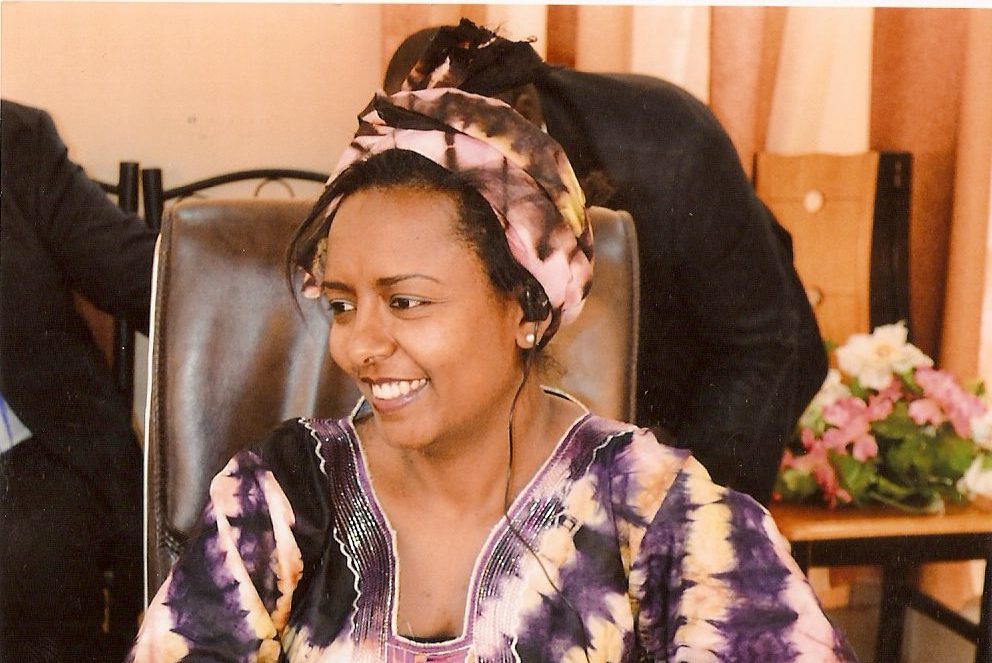Meskerem Geset Techane has fought injustice since she can remember: as a child she was known to stand up for herself and others, whether against bullies, teachers, her parents or church. Fighting injustice and promoting human rights is a common theme in the lawyer’s life. “It’s a passion, promoting human rights is not something you choose to do for a living or as a career opportunity. It’s more of a calling for me.”
A calling that has led Meskerem to impressive places. In Ethiopia, she served as a High Court Judge, worked as a pro-bono lawyer, and founded or spearheaded several civil society initiatives, most recently Lawyers for Human Rights and TIMRAN (She Leads). At the African level, she worked with African Union human rights bodies and African human rights lawyers. She initiated a continent-wide effort on human rights lawyering and strategic litigation. Meskerem is also active at the international level: she is currently a UN Human Rights Council’s distinguished Rapporteur mandate holder appointed with a global mandate in the UN Working Group on Discrimination against Women and Girls. Meskerem does it all: not only does she simultaneously work on the national, African, and international level, she also works on a multitude of human rights topics. The rights of women and children and their intersectionality with various topics have become a red thread in her work.
Any opportunity to discredit me is used. When I assert my leadership and demand excellence, men complain that I’m insulting them. They would never say that to the other men in their ‘boy’s club.’ It’s very subtle, but it’s bullying and intimidation attempting to discredit me. Many women human rights defenders face such experiences.
Meskerem Geset Techane Tweet
Working in a male-dominated environment, Meskerem is often the only woman in many of the high-level discussions she attends – whether in Addis Ababa, Banjul, or Geneva. Like so many women, she has had to face misogyny: “Any opportunity to discredit me is used. When I assert my leadership and demand excellence, men complain that I’m insulting them. They would never say that to the other men in their ‘boy’s club.’ It’s very subtle, but it’s bullying and intimidation attempting to discredit me. Many women human rights defenders face such experiences.”
Meskerem finds it particularly disheartening to see this happening within the human rights field: “I like to do value based human rights work where rule of law and accountability begins with us – the HRDs. How can I assert myself as a defender if I don’t live by the values I defend? Human rights need to become our personal values. Accountability starts with us. We can’t ask states for accountability, if we’re not accountable ourselves. We need this integrity as HRDs: we have to do value-based work, value-based advocacy, value-based lawyering to achieve a sustainable culture of human rights.”
I like to do value based human rights work where rule of law and accountability begins with us – the HRDs. How can I assert myself as a defender if I don’t live by the values I defend? Human rights need to become our personal values. Accountability starts with us. We can’t ask states for accountability, if we’re not accountable ourselves. We need this integrity as HRDs: we have to do value-based work, value-based advocacy, value-based lawyering to achieve a sustainable culture of human rights.
Meskerem Geset Techane Tweet
Dealing with human rights violations from around the globe on a daily basis takes its toll on Meskerem. Not only does she take injustice very seriously, she also takes it personally, causing pain and anger. But sometimes it is exactly this anger that energises Meskerem and motivates her to continue. Seeing how other HRDs are silenced and repressed encourages her to use her platform to promote human rights for as long as she can. Her main demand from national, regional, and international actors is to strengthen protective and supportive systems for HRDs – their contribution to society’s collective well-being and safety needs to be respected and protected.

